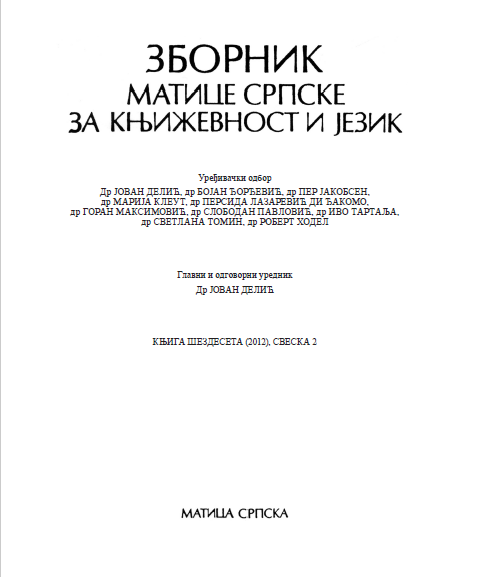ЖАНР МОНОГАТАРИ У ЈАПАНСКОЈ КЊИЖЕВНОСТИ
THE MONOGATARI GENRE IN THE JAPANESE LITERATURE
Author(s): Danijela VasićSubject(s): Other Language Literature, Theory of Literature
Published by: Матица српска
Keywords: Japanese Literature; Monogatari genre;
Summary/Abstract: During the Heian period of Japanese history, Japanese literature had just emerged from a time of substantial Chinese influence. After the written Chinese had been in the use in Japan for some centuries, the emergence of the kana syllabic script, which evolved by adapting Chinese characters, provided the transcription of Japanese sounds. It brings innovations especially in the field of poetry. It also enabled the origin of autochthonous narative genre monogatari, often translated as ’story’, with its main subgenres: the tsukuri monogatari and the uta monogatari. The monogatari is usually based on themes and motifs of oral tradition, but the detailed realistic description, the psychological shading of the characters, developed dialogues and discrete comic overtones bring it closer to the spirit of the novel.
Journal: Зборник Матице српске за књижевност и језик
- Issue Year: 60/2012
- Issue No: 2
- Page Range: 347-361
- Page Count: 15
- Language: Serbian

